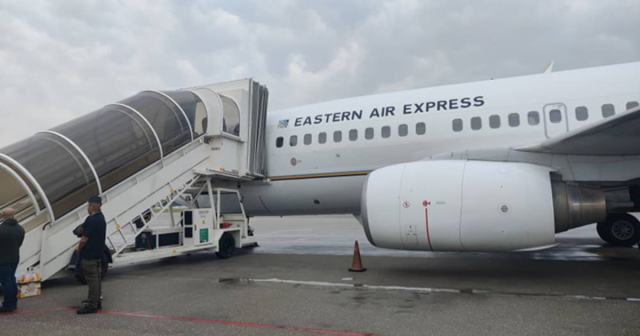TheJoe Biden administration does not plan to withdraw Cuba from the list of countries sponsoring terrorism, because it considers that it does not comply with the requirements demanded by the United States, the Secretary of State stated this Thursday,Antony Blinken.
“We do not plan to remove [Cuba] from the list,” Blinken said during a hearing of the House of Representatives Foreign Relations Committee.
The head of US diplomacy answered questions about Cuba in an intense exchange with the Republican congresswomanMaria Elvira Salazar, who referred to the issue by mentioning “existing rumors” about the elimination of the Cuban regime from the list of nations sponsoring terrorism.
“Let me be very clear…There is no automatic or mandatory review [about the listing]. There are several members [of Congress] who have been interested in this issue and the law establishes very clear criteria for rescinding appointments… There is a very high bar to do so,” Blinken explained.
Salazar spoke again. “So, do you think that up to this point Cuba has met that high bar or not?” he asked.
“At this point, clearly not,” the official responded.
"Good. “So, does that mean that you commit right now, in public, under oath, that the State Department does not plan to remove Cuba from the list of terrorist states?” continued the Cuban-American legislator.
“What I am committed to is that, if that review is going to be done, it will be based on the law and the criteria of the law established by Congress, which, as I said, is a very high bar,” Blinken added.
Salazar is a promoter of alegislative project to prevent Cuba from being removed from the list of nations sponsoring terrorism until it meets the essential requirements of a democratic country, releases political prisoners and holds multiparty elections. The proposal was initially presented in 2021 andreintroduced last Januaryin the House of Representatives.
Blinken's ratification of Cuba's permanence on the State Department's terrorism "blacklist" closes the doors to unofficial versions that Washington was preparing to make this key sanction more flexible.reimposed by the Donald Trump administration in January 2021.
The procedure to lift sanctions on a country included in the list begins with a communication from the President to Congress, 45 days prior to the decision, which must be based on the behavior of the sanctioned nation and the commitment not to participate in terrorist activities. in the future.
Historically, Cuba was included for the first time on the list of countries sponsoring terrorism in 1982 and appeared with that designation until 2015, when President Barack Obama lifted the restriction as part of the thaw policy towards the island.
The sanction implies severe financial limitations for the Cuban regime, and obstacles to operate banking transactions and obtain credit lines at a global level.
In recent months, diplomatic rapprochements through visits by high-level delegations to Havana,trips of Cuban government officials to the United States and meetings to establish common strategies on immigration and security issues, created the perception that a relaxation of White House policy was approaching.
Last January, the Biden administration resumed the call in HavanaLaw Enforcement Dialogue with the Cuban government, frozen since 2018.
Several leaders of the region, such as the ColombianGustavo Petro and the MexicanAndrés Manuel López Obrador, They recently asked Biden to exclude Cuba from the list of sponsors of terrorism.
Signs about Cuba's possible departure from the list it shares with Iran, Syria and North Korea also seemed to emerge after theefforts of Pope Francis and his special envoy to Havana, Cardinal Beniamino Stella, who asked the ruler Miguel Díaz-Canel to release political prisoners, especially those involved in the 11J demonstrations.
At the end of February, the State Department published its Country Terrorism Report (CTR) for 2021, which was interpreted as a reminder from Washington in the case of Cuba.
A State Department source linked to the preparation of the report clarified toCyberCuba that the publication of the report had been delayed by “resource limitations and procedural problems related to the content,” but emphasized that it did not imply any new developments or announcements.
“We do not announce things in the Country Reports on Terrorism, but rather it is better understood as a historical document,” said the official, who predicted that “the 2022 report will be something similar.”
What do you think?
SEE COMMENTS (7)Filed in:
